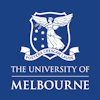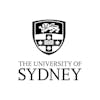|
|
|
|
I’ll warn you – I’m about to put a bit of a dampener on your Saturday morning (sorry about that). But I’m also sharing a call for us to radically rethink our priorities.
Humans aren’t generally good at understanding societal change on decades-long timelines, writes Tom Doig in his brilliant and challenging Friday essay on climate change and social collapse.
Yes, news headlines around the world are full of floods and bushfires, wars and melting sea ice, inflation and housing affordability problems. But for many of us, when we wake up and look out of the window, life feels much like it always has. That’s because we live in the now – in the moments when we drink our morning coffee, or weed the garden, or take our kids to Saturday sport – not in future projections.
Jem Bendell, a former professor in sustainability leadership, argues in his new book, Breaking Together, that collapse is already underway – the quality of life in most countries and regions of the world peaked, then slowly began to decline, around 2016. Societal collapse isn’t dramatic and sudden, like an apocalyptic disaster movie; it’s a process.
Many of the world’s natural and human-made systems, which combine to make up “industrial consumer society”, are under severe stress, or are already cracking.
It’s scary stuff, but accepting that major change is inevitable can allow us to radically rethink how humans interact – with each other, and with the natural world.
As Doig asks: what do we do with this “collapse awareness”?
Bendell advocates for an ideal of “ecofreedom”. This includes obvious ideas, such as reconnecting with nature, as well as supporting youth climate activism and decolonial, resource-preserving movements in the Global South – where real change just might come from. Examples might include supporting community-based microfinance schemes and small-scale farming projects.
He also calls for embracing a “positive disintegration” of self and values, to refocus one’s mind, and entire existence, on things that really matter. That includes, of course, caring for the environment, rather than engaging in behaviours that damage it – as well as small personal choices on a moment-to-moment level. Bendell says he enjoys meditating, hiking in nature, and ecstatic dance. “It is refreshing to see self-help discourses appear side-by-side with serious discussions of monetary policy and climate tipping points,” writes Doig.
Among the serious, societal-level arguments, is this simple philosophy of avoiding harm and focusing on doing good – while facing the very real challenges ahead, rather than hiding away and hoping everything will invisibly work itself out. “Dig garden beds, not bunkers.”
|

|
Jo Case
Deputy Books + Ideas Editor
|
|

Fire over Tenterfield, New South Wales.
Try Liang/AAP
Tom Doig, The University of Queensland
Jem Bendell encourages us to think about societal collapse in ways that are ‘profound and startlingly original’, with the potential to birth whole new social movements, says Tom Doig.
|
Weekend long reads
|

Pictures of Sameeh Nadi and Esam Bashar in mock coffins representing Palestinian journalists killed during the war in Gaza, Ramallah, West Bank, November 7 2023.
Nasser Nasser/AAP
Peter Greste, Macquarie University
Wars in Gaza and Ukraine have led to increased numbers of journalists being killed, and this is bad news for everyone.
|

Yanis Varoufakis speaking in Rome, November 12, 2022.
Angelo Carconi/AAP
Christopher Pollard, Deakin University
Traditional capitalists are still flourishing, but according to Yanis Varoufakis they are not driving the economy like they used to.
|

Petty Officer 2nd Class Wesley Richardson/Australian Defence Forces/AP
Ian Kemish AM, The University of Queensland
Since its early history, Australia has seen the Pacific as a vast, empty region where foreign powers threatened its security. This focus has undermined our effectiveness in the region.
|

Maria Orlova/Pexels
Liz Evans, University of Tasmania
Sad Bad Girl novels combine the haplessness of Bridget Jones with the despair of Sally Rooney. Liz Evans assesses a ‘buzzy’ debut within the genre and a #MeToo novel that refreshingly defies categories.
|

Rapids on the Franklin River, Tasmania.
Taras Vyshnya/Shutterstock
Dan Dixon, University of Sydney
In Question 7, Richard Flanagan writes of the contingencies of history, and troubles the distinction between truth and fabrication.
|

Dante’s Inferno – Joseph Anton Koch, detail from Cassa Massimo fresco (c.1825).
Sailko, via Wikimedia Commons
Julian Murphet, University of Adelaide
Let Us Descend is concerned with the neglected lives of the the poor, the despised, the dark, those barely scraping a living, but cannot capture the collective experience of slavery.
|
Our most-read piece this week
|

Elena Eryomenko/Shutterstock
Enzo Palombo, Swinburne University of Technology
‘Fried rice syndrome’ refers to food poisoning from a bacterium called Bacillus Cereus, which becomes a risk when cooked food is left at room temperature for too long.
|
In case you missed this week's big stories
|
-
Paul Haskell-Dowland, Edith Cowan University; Mark A Gregory, RMIT University; Mohiuddin Ahmed, Edith Cowan University
Optus suffered one of the largest telecommunications outages in Australian history today. Here are the factors that can cause such events.
-
Alison Stieven-Taylor, Monash University
Optus has let the story run away from it and failed to show contrition, for the second time in a little over a year.
-
Peter Martin, Crawford School of Public Policy, Australian National University
It’ll now be a frugal Christmas in many Australian homes. But there is a glimmer of good news: if we do tighten our belts, rates could start to come down by as early as the middle of next year.
-
Andrew Macintosh, Australian National University; Don Butler, Australian National University
For Australia to shift to a net zero economy, its big polluters need to cut emissions. A get-out clause buried in the policy makes it unlikely that they will, and the result will be devastating.
-
Jingdong Yuan, University of Sydney
Beijing focused on the shared interests and identities between China and Australia, emphasising the enduring importance of the bilateral economic relationship.
-
Charles Knight, Charles Sturt University
Though Hamas has the advantage of fighting on its territory, Israel has developed one of the most effective urban fighting militaries in the world.
-
James Wood, UNSW Sydney; Bette Liu, UNSW Sydney; Katie Louise Flanagan, University of Tasmania; Stuart Turville, UNSW Sydney
This is expected to be the smallest Omicron wave so far. But eligible older and vulnerable people are still recommended to have a booster.
-
Kate Burridge, Monash University; Stephen Cordner, Victorian Institute of Forensic Medicine
The meanings we carry around in our heads seem so natural and inborn that we fail to realise other people can have quite different understandings.
-
Fan Yang, The University of Melbourne; Ausma Bernot, Charles Sturt University
How can the world regulate AI? Europe’s comprehensive approach, China’s tightly targeted laws, and America’s dramatic executive order hint at three ways forward.
-
Bethany Layne, De Montfort University
Queen Elizabeth II managed to claw back popular support after the PR disasters around her handing of Diana’s divorce from Prince Charles and her response when she died.
|
|
| |
|
|
|
The Conversation AU
Melbourne VIC, Australia
•
Full Time
|

|
|
|
|
| |
| |

|
| |
| |
| |
Featured Events, Courses & Podcasts
|
View all
|
|
1 January 2023 - 7 October 2026
•
|

|
21 - 22 November 2023
•
Melbourne
|

|
14 - 21 November 2023
•
Sydney
|

|
2 December 2023
•
The University of Sydney
|

|
|
|
|
| |
| |
| |
| |
| |
|
|
|
|
|
|
|